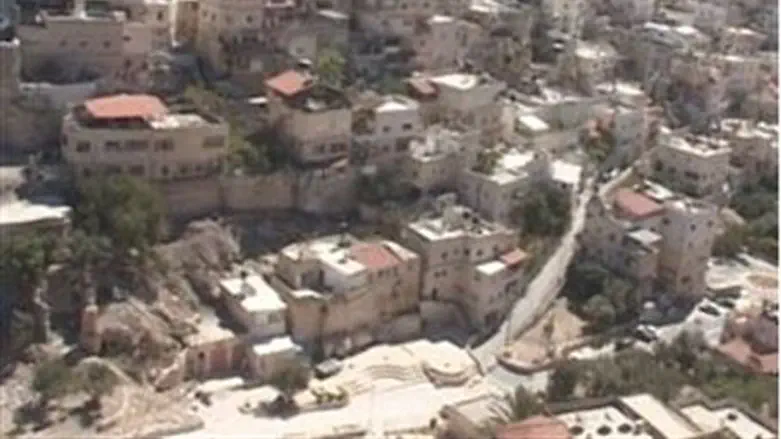
The Jerusalem municipality is continuing to upgrade its Arab neighborhoods, closing gaps with the rest of the city, and as a result, changing the attitude of Jerusalem's Arab residents towards the city's government.
The city opened a new Infant Care Center on Sunday in cooperation with the Ministry of Health in the Arab-populated section of the historic Shiloach (Silwan) neighborhood, near the City of David.
The Shiloach is the name of the spring situated in the neighborhood that was the only source of Jerusalem's water supply in ancient times. It figures prominently in the Book of Kings, which describes how Judean King Hezekiah connected it to the inner city by an underground tunnel that can still be traversed today.
Jerusalem Mayor Nir Barkat was present for the ceremony together with community leaders.
The 30th such facility in the nation's capital, the infant care center offers free services to families, provided by doctors, nurses and social workers. Tests, lessons on health, safety and nutrition are available as well.
The center in the Shiloach neighborhood is the first to open under Barkat's administration, and “part of his strategy to close gaps in Arab neighborhoods throughout Jerusalem in areas of education, infrastructure, community services, culture, permitting process and welfare services.”
Independent public opinion research carried out by the Palestinian Center for Public Opinion in partnership with the U.S.-based Pechter Middle East Polls found that Barkat's work is paying off. Arabs want the parts of the city in which they live to stay Israeli.
According to the study, 57 percent of respondents polled in all Arab neighborhoods of Jerusalem were satisfied with their standard of living – up from 44 percent in a November 2010 survey.
Only 43 percent were dissatisfied on the issue of obtaining building permits, down from nearly 70 percent in November 2010.
Similarly, only 16 percent reported dissatisfaction with Jerusalem city officials, as opposed to 35 percent in November 2010.
More to the point – nearly half, 42 percent said they would move to a different neighborhood if necessary, in order to remain within Israeli sovereignty, rather than have to live under the Palestinian Authority.
“Opening the Infant Care Center in Shiloach is just another step forward in our duty to invest in the Arab residents of Jerusalem,” said Barkat. “The city of Jerusalem will continue to invest in Arab neighborhoods in cooperation and coordination with the Arab residents of Jerusalem in order to improve their quality of life.”
The Shiloach neighborhood has actually become a mixed neighborhood again in recent years, with Jews slowly begining to return to Jewish homes there, known from more than 100 years ago as the Yemenite Jewish neighborhood of Shiloach. The Jews had left during the Arab pogroms of 1929 and were prevented from returning to their homes when the Jordanians overran that part of the city in 1948.